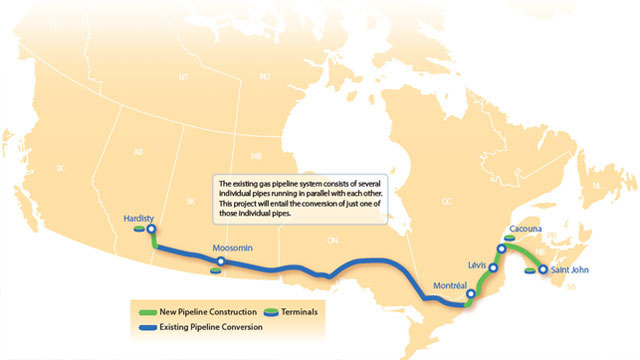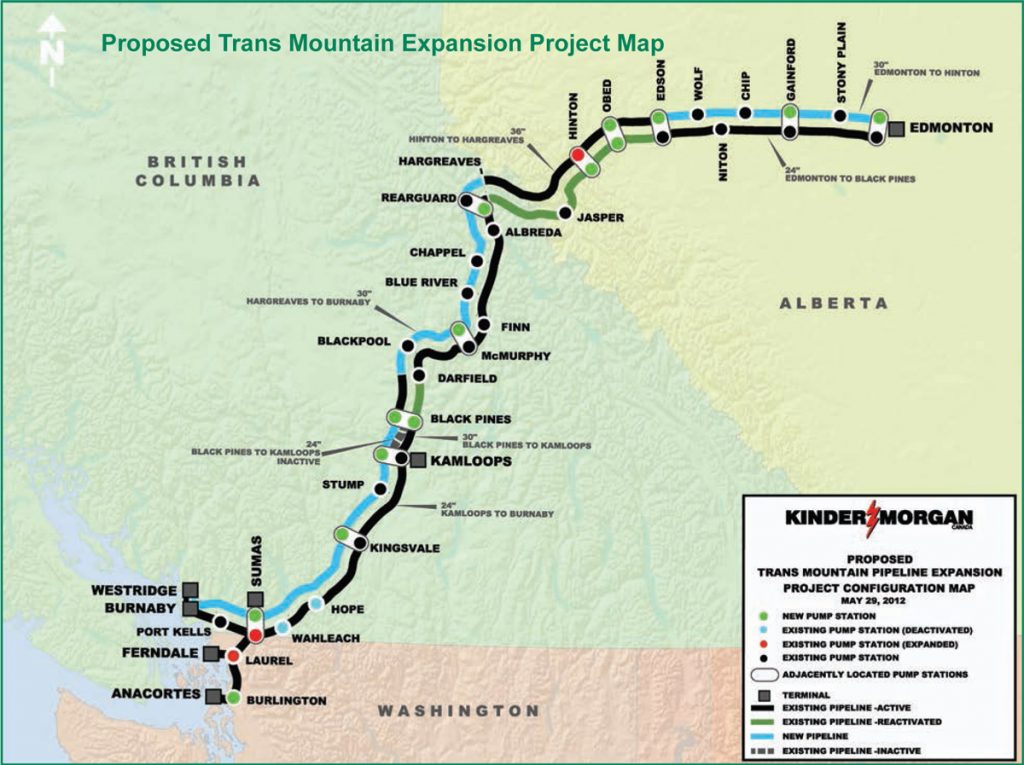Politics + Energy Logistics = Bad Combination
When the politics of one kind of energy vs. another overtake the reality of needing to move energy from the source location to the customer’s location, things can get out of whack fast. Just ask Canada.
Canada’s First Nations are chasing each other in circles. Some chiefs oppose oil pipelines and energy projects, while others cheer the idea of jobs and financial independence.
AFN national chief Perry Bellegrade told CBC News he wants the opposing groups to embrace economic opportunities because “we’re tired of being poor.”
While some First Nations formed an alliance to stop the construction of oil pipelines, at virtually the same time other First Nations have gathered in Calgary to discuss how to encourage the oil industry. Chiefs representing oil and gas First Nations are talking about reconciling traditional values and energy development at this week’s Pipeline Gridlock Conference in downtown Calgary.
“We have opposing views on oilsands development, pipeline construction, tidewater access for oil to reach world markets,” said Chief Charles Weasel Head with the Kainai First Nation in Southern Alberta.
First Nations are pushing for an equity stake in pipeline projects as one way to capitalize on the opportunities the oil and gas sector provides for financial independence.
Energy East debacle continues
Former CEO of TransCanada Hal Kvisle said the delays caused by the replacement of a panel reviewing the Energy East Pipeline project show that Canada’s regulatory system is flawed and must be fixed, discussing the recusal of a National Energy Board panel in early September.
“I think it’s another failure of (the) regulatory process in Canada that we can’t even commence a regulatory process without it coming off the rails,” the TransCanada former chief executive said in an interview with The Canadian Press.
“It’s regrettable. I’ve been making the point to the government of Canada for about 12 or 13 years there needs to be significant improvements in the regulatory process and here we’re just had it thrown in the ditch again by people whose objective is really just to stop the whole thing,” Kvisle said.
After NEB’s hearings in Montreal were disrupted by protesters, the review was abandoned and the panel was scrubbed. Critics charged the panel was biased after learning that two of three panelists met last year with former Quebec premier Jean Charest, who was then a consultant for TransCanada, the Canadian Press reported.
On Sept. 9, Canada’s National Energy Board issued a press release announcing two decisions addressing motions before the panel that was hearing the Energy East application and the Eastern Mainline Project application.
“The motions raise issues with meetings that were held in Québec, in early 2015, in preparation for the NEB’s National Engagement Tour, an initiative anchored upon improving relationships with municipalities and Indigenous Peoples, improving pipeline safety and environmental outcomes,” the NEB said it its press release.
“The first decision deals with the request to adjourn the proceedings, and with the request for recusal of each of the three members on the Panel.
“All three Panel Members have decided to recuse themselves in order to preserve the integrity of the National Energy Board and of the Energy East and Eastern Mainline Review. The Members acted in good faith, and have pledged not to discuss these two applications with either other Board members or Board staff.
“The Energy East and Eastern Mainline Hearing is adjourned until a new panel is appointed. Once a new panel is appointed, the review of the two project applications can and will proceed.
“The second decision was made by the Chair and the Vice-Chair to recuse themselves … from these very specific duties only in relation to the two applications at issue here. They are doing so because they understand that their participation in these meetings may have created an apprehension of bias which could undermine the integrity and the credibility of the Board’s decision making process.
“They note that new panel members must not only be free of apprehension of bias but also be proficient in both official languages. The government’s process is currently underway to select new Board Members.”
This development could create a significant delay for the Energy East decision. The new panel is to decide how the review will proceed and whether evidence will need to be heard again.
The 4,500-kilometer pipeline would cost $15.7 billion and carry 1.1 million barrels of oil per day from Alberta to New Brunswick. Crude oil from Alberta would be shipped through the pipeline to Saint John, where it would be refined.
Combined opposition to moving Canadian oil
First Nations communities from Canada and the northern United States signed a treaty in September to jointly fight proposals to build more pipelines to carry crude from Alberta’s oil sands, saying further development would damage the environment, CBC reported.
But Ottawa’s Justin Trudeau led federal government green-lighted the Pacific NorthWest LNG project last week, which includes the construction of an $11-billion export terminal in northern B.C., expected to produce about 19.2 million tonnes of LNG when operating at full capacity.
Trans Mountain, a $6.8-billion Alberta-to-B.C. pipeline expansion, was conditionally approved by the NEB last spring but still requires government approval to proceed.
“What people have to understand is First Nations people are getting poorer and they have been getting poorer for the last 20 years,” Blaine Favel, chancellor of the University of Saskatchewan and chair of the Calgary conference, said this week.
“The energy industry has allowed our people a ladder to employment, to partnerships,” he said.
Last month, 50 First Nations in North America signed the Treaty Alliance Against Tar Sands Expansion. They oppose tanker and rail proposals in both countries, including pipeline projects proposed by Kinder Morgan Inc., TransCanada Corp. and Enbridge Inc.
One of the most politically tainted proposed pipeline projects was TransCanada’s Keystone XL pipeline in the U.S. The final application was turned down by the Obama administration after almost eight years of planning and permitting activity up and down its route. The first application to build the Keystone XL was submitted on Sept. 19, 2008, by TransCanada. The company is suing the U.S. government for $15 billion.




